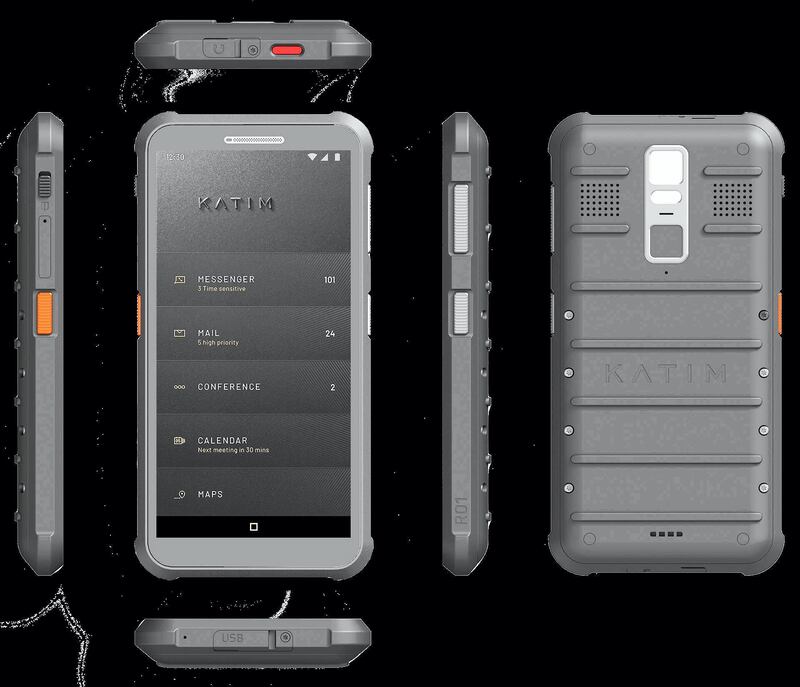DarkMatter, a fast-growing cybersecurity firm in the UAE with high-profile government and other contracts, on Sunday launched to market its latest “hack-proof” smartphone, for use by the military and others working in extreme conditions.
The launch comes amid efforts by regional governments to expand their security capabilities and develop local defence industries.
What is the phone called?
The Katim R01 is the latest in DarkMatter's security hardware product range, which already includes the hack-proof Katim smartphone, launched in 2017. This latest model was built to withstand vibration, pressure, dust, water and being dropped or run over. It has an extended battery life and can withstand high humidity, altitude and extreme temperatures. It also has a built-in SOS function for emergencies.
Why has it been developed?
The phone was designed specifically for military use and in other tough physical environments such as the construction, mining, transport and energy industries – the backbone of many Gulf countries.
DarkMatter and other companies are supporting the UAE's quest to develop its defence industry to increase national security amid heightened geopolitical tensions.
How does the phone resist hackers?
DarkMatter said last November it had identified several “common, preventable cybersecurity weaknesses” across the region. Outdated software, weak passwords and a lack of awareness were making some entities a soft target for cyber-criminals, it warned.
Using teams of software engineers across the UAE, Finland and Canada, the company built the Katim R01 with a toughened operating system and secure communications function, together with tamper-resistant hardware to protect against hacks. The phone is also wired up to a real-time monitoring system that instantly detects intrusions and wipes the phone to protect the user’s data. For highly confidential discussions, a special talk mode ensures privacy.
Is cybersecurity a big risk in the Middle East?
Cyber attacks in 48 per cent of Middle East and Africa companies resulted in damages costing more than $500,000 (Dh1.8 million) each in 2017, according to a 2018 study by Cisco.
Last year, the level of protection against external attackers was assessed as “extremely low” for 43 per cent of regional companies, Moscow-based Kaspersky Lab said in August.
Cyber attacks in the region is creating a boom in the cybersecurity industry, which is expected to double in size by 2022 from around $11.4 billion (Dh42bn), today, according to consultancy Fircroft.







